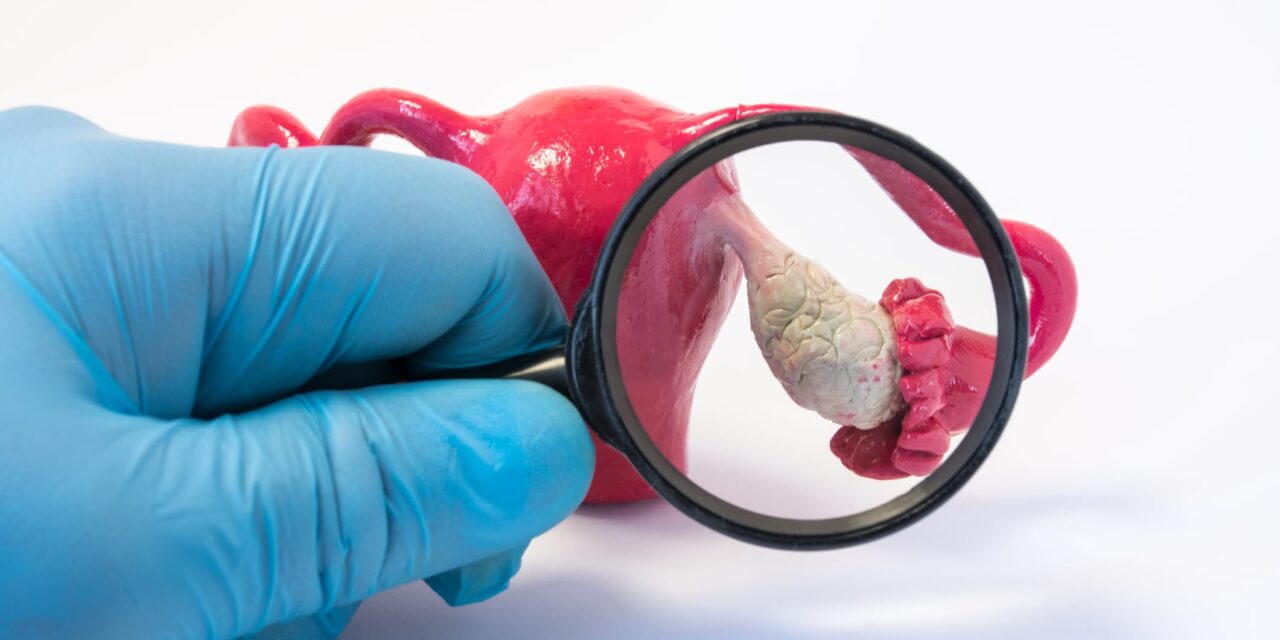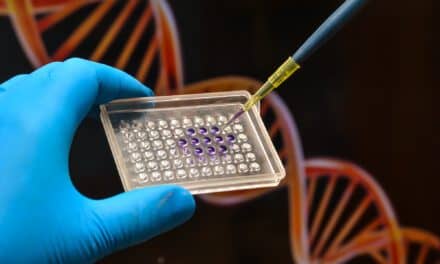A new study demonstrates the capability of a blood test in detecting ovarian cancer up to three years prior to diagnosis in prospectively collected samples.
A validation study published in Gynecologic Oncology shows a blood test for early-stage ovarian cancer detection—the Mercy Halo assay—achieved 89% sensitivity for preclinical stage I/II high-grade serous ovarian cancer at 98% specificity in average-risk postmenopausal women.
The study, led by Mercy BioAnalytics researchers in partnership with the Medical Research Council Clinical Trials Unit at University College London (UCL), demonstrates the test’s ability to detect ovarian cancer up to three years prior to diagnosis using prospectively collected preclinical samples from the UK Collaborative Trial of Ovarian Cancer Screening (UKCTOCS).
The test detects tumor-derived extracellular vesicles and particles in blood samples. According to the researchers, the high specificity—which is significantly improved compared to CA125—minimizes potential false positives while the high early-stage sensitivity enables detection of ovarian malignancy before symptoms arise.
“Achieving nearly 90% sensitivity with 98% specificity in early-stage disease is unprecedented in this space,” says Dawn Mattoon, PhD, chief executive officer of Mercy BioAnalytics, in a release. “We are more confident than ever that our technology can transform how ovarian cancer is detected, offering women a real chance at earlier intervention and improved outcomes.”
Addressing Unmet Clinical Need
Ovarian cancer will kill nearly 13,000 women in the US this year, according to a release from company. More than 70% of ovarian cancer is diagnosed in women over 50 years of age, and nearly 80% is diagnosed at an advanced stage when survival is poor. When detected early while disease remains localized, nearly 90% of women survive for 10 years or more.
Legacy diagnostic test methods have not shown adequate clinical performance to enable broad adoption for ovarian cancer screening, the researchers note.
“This study demonstrates that blood-based biomarkers can provide a highly specific and sensitive signal for early ovarian cancer,” says Dr Usha Menon, professor of women’s cancer at UCL and senior author of the paper, in a release. “The blinded evaluation of preclinical samples from the no screening and ultrasound arms of UKCTOCS represents an important step forward in population screening.”
Technology Platform Details
The Mercy Halo liquid biopsy platform uses biomarker co-localization to interrogate blood-based extracellular vesicles that carry cancer signatures from their parent cells. The platform is designed to detect early-stage cancer when it is most treatable.
Mercy BioAnalytics focuses on early detection of ovarian and lung cancers. The company describes ovarian cancer as the most lethal gynecological cancer that typically goes undetected until advanced stages.
The next phase will assess the robustness and reliability of these findings by evaluating performance in the third arm of the UKCTOCS trial, the multi-modal screening arm, according to Menon.
UKCTOCS enrolled over 200,000 eligible postmenopausal women from the general population, aged 50-74 years, between 2001 and 2005. Participants were randomly allocated to no screening or annual screening until December 2011, with follow-up through national registries until 2020.





